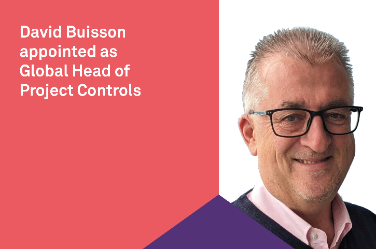
Project controls
We are committed to providing industry-leading project controls services to our customers ensuring alignment between people, systems and process to deliver more s...

Global Head of Project Controls
David Buisson has been appointed as Global Head of Project Controls.

Mega Project Scheduling
Effective risk management is a key aspect of successful project delivery in the construction industry; there are several strategies that can be used to mitigate p...




